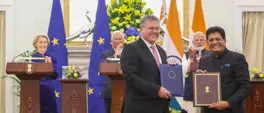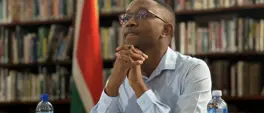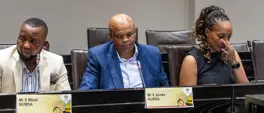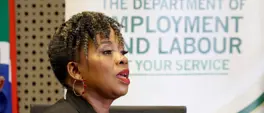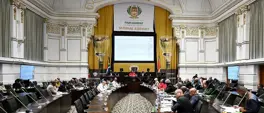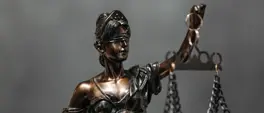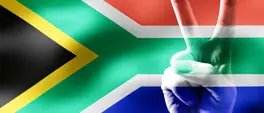JAMIL F. KHAN | Ngizwe Mchunu hate speech sparks rare moment of united defence of constitutional values
Jamil F. Khan
8 October 2025 | 7:51"Ironically, the right to freely practice the culture that Ngizwe Mchunu claims to be protecting from queer people, was also fought for by queer people."
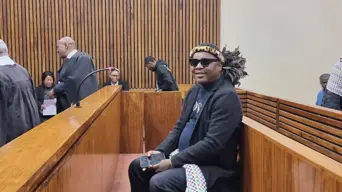
Ngizwe Mchunu appeared in the Randburg Magistrates Court on 6 July 2023. Picture: Bernadette Wicks/Eyewitness News
The constitution of South Africa, adopted in 1996, after a lengthy process of deliberation that established it as the supreme law of the country.
The constitutional democracy that our constitution envisions is “committed to the creation of a society based on democratic values, social justice and fundamental human rights.”
Each of us, as citizens and residents of this country, is bound to the constitution, which in its preamble states that “We, the people of South Africa, Recognise the injustices of our past; Honour those who suffered for justice and freedom in our land.”
Our constitution stands head and shoulders above many so-called developed nations for many reasons, but specifically for being the first in the world to prohibit unfair discrimination on the grounds of sexual orientation.
Despite this, South African society still sees high levels of homophobia, which in some instances escalate to hate crimes that end queer people’s lives.
This level of hatred always starts with words that express homophobic attitudes, as shown by Ngizwe Mchunu in a recent online rant.
Mchunu, in response to pictures of a traditional same-sex wedding, shared a video on Facebook telling his 613 000 followers that he “hates” the LGBTIQ+ community. He further insisted that gay people should “be gay elsewhere” and should not wear traditional attire as it is reserved for heterosexual men.
He then took aim at popular shisanyama and traditional market, Kwa Mai-Mai, where he claims there are “too many gay people” in a space that is meant for “real men”, vowing to physically remove queer people from the venue.
This threat was met with a strong police presence and rejection by Kwa Mai-Mai management that prioritised their commitment to creating a welcoming space that treats all patrons fairly and with dignity under the constitution.
The incident also drew a response from Gauteng Izinduna chairman, Siphiwe Mhlongo, who rejected the notion that Mchunu speaks for the Zulu nation by spewing such hate.
In a pleasantly surprising turn of events, a chorus of condemnation for Mchunu’s utterances has reverberated across sectors from government to civil society, all citing a violation of constitutional principles.
It is surprising to me, because while many have claimed allegiance to the constitution even those who have taken oaths to uphold it in public office have shown their biases when it comes to queer people.
For most of my life as a queer person, it has felt dangerous in spite of a constitution that prohibits discrimination against me. Years of online discourse have shown how many people seem to have a mental block when it comes to accepting queer rights as human rights.
When referred to the historical injustice of apartheid as a caution against prejudice, most have insisted that racism was the centre of apartheid oppression and is therefore the most important social injustice deserving of redress.
The response to this unfortunate outburst of hate speech, by Mchunu stands up for the humanity of queer people in a way that is reminiscent of a time where South Africa led the world in its unequivocal respect for human rights. As noted in the preamble above, South Africans are obliged to recognise the injustices of the past.
However, many select the injusticesthey want to recognise as long as it is beneficial for them. Apartheid was not only a regime of racial terror, but aimed to control every aspect of social life, including that of white people.
The domains of gender and sexuality were also subject to severe control and punishment for all races under apartheid, tying the experience of race to both gender and sexuality. As Deputy Minister of Women, Youth and Persons with Disabilities stressed: “the South African Constitution is an intersectional document, born at the intersection of race, gender, class and culture.”
Acknowledging this requires us to reckon with the meaning of the second point the preamble insists on, that we honour those who suffered for justice and freedom in our country.
We are by now accustomed to honouring those who fought for freedom from apartheid, but this moment invites us to remember that whether we know it or not, our struggle heroes were also queer people.
As I wrote in a previous article, the premise of the first Pride march in SouthAfrica on 13 October 1990 was that the fight for queer rights was also an anti-apartheid struggle. There could be no end to apartheid without the end of queer oppression, and queer people took up the struggle with equal fervour, facing the same danger as their comrades.
Ironically, the right to freely practice the culture that Ngizwe Mchunu claims to be protecting from queer people, was also fought for by queer people. Though Mchunu espouses a very strictly gendered version of culture, African cultures and their related spiritual practices have always interpreted the embodiment and performance of gender and sexuality generously.
The enforcement of gender norms that conform to a binary is a colonial inheritance that did not even acknowledge African men as men. In this way queer activism, that demands equality and respect for the human rights of all people, fights for Ngizwe Mchunu’s right to be seen as a man.
While we have much work to do in translating our constitutional values into material realities, this overwhelming display of solidarity with queer communities in the face of hate signals a reaffirmation of our commitment to rejecting the hate of our past, leaving nobody behind.
While colonial governments in countries like the USA and the UK regress on gender and sexuality, while not only allowing hate speech but sometimes encouraging it, we must remain an example of commitment to human rights.
Our understanding of a brutal past of oppression must remain a shining light in a world unbelievably divided on the definition of universal human rights.
While I, and many queer people, still face prejudice and danger, it absolutely matters that my government, political parties I did not vote for, and traditional leaders I do not follow stand up on behalf of people like me to reject a call to hatred, and affirm that our obligation is to humanity, no matter whose.
I was not prepared for a day when I would feel happy to be in South Africa as a queer person, but it is a good day to bear witness.
Jamil F. Khan is an award-winning author, doctoral critical diversity scholar, and research fellow at the Johannesburg Institute for Advanced Study.
Get the whole picture 💡
Take a look at the topic timeline for all related articles.

